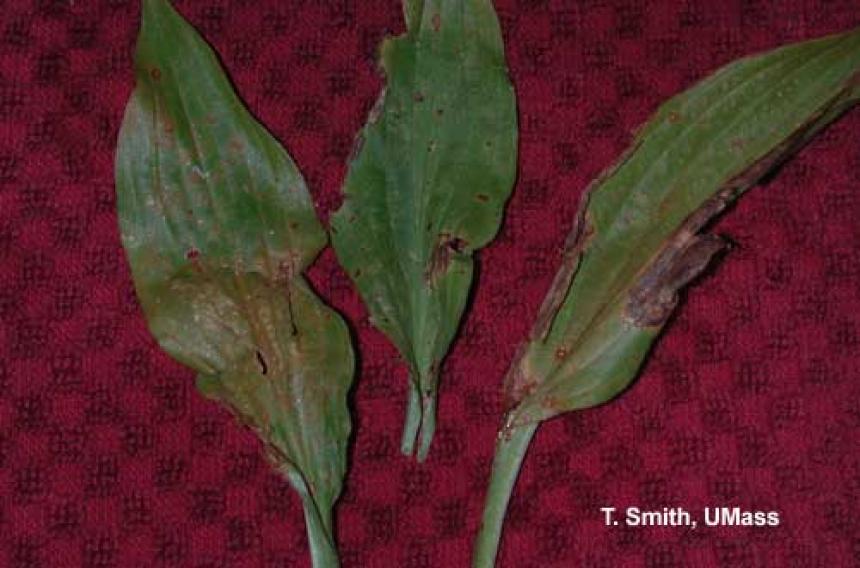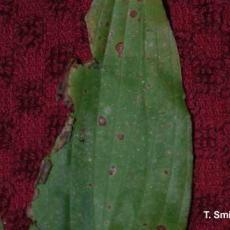Alternaria diseases are common on many ornamental crops. Alternaria spp. are a fungus disease that causes small grey leaf spots with reddish-brown margins. Note the "Target" or "Bulls-eye" nature of the lesions; this is characteristic of Alternaria diseases. Leaf spot symptoms may vary depending on fungus species and host plant.
Alternaria leaf spots and blights are common leaf pathogens on many crops. Sometimes the Alternaria species is specific to a particular crop; often Alternaria alternata is the pathogen involved; this species is common, has a wide host range, and can occur as a secondary invader of senescent or injured tissue. Cultural control measures include rotation to non-susceptible crops for two years, control of susceptible weeds,and removal of crop debris from the planting area or prompt incorporation of refuse after harvest. Careful attention to the timing of irrigation (avoid late afternoon or evening) and proper plant spacing to reduce the amount of time during which the plants remain wet can reduce disease spread. Treat with protective fungicides at regular intervals. Among the compounds registered for use on ornamentals are chlorothalonil, thiophanate methyl, copper compounds,and mancozeb. The effectiveness and number of sprays required will vary with weather conditions.
Fact Sheet: Leaf Spot Diseases on Ornamental Crops

